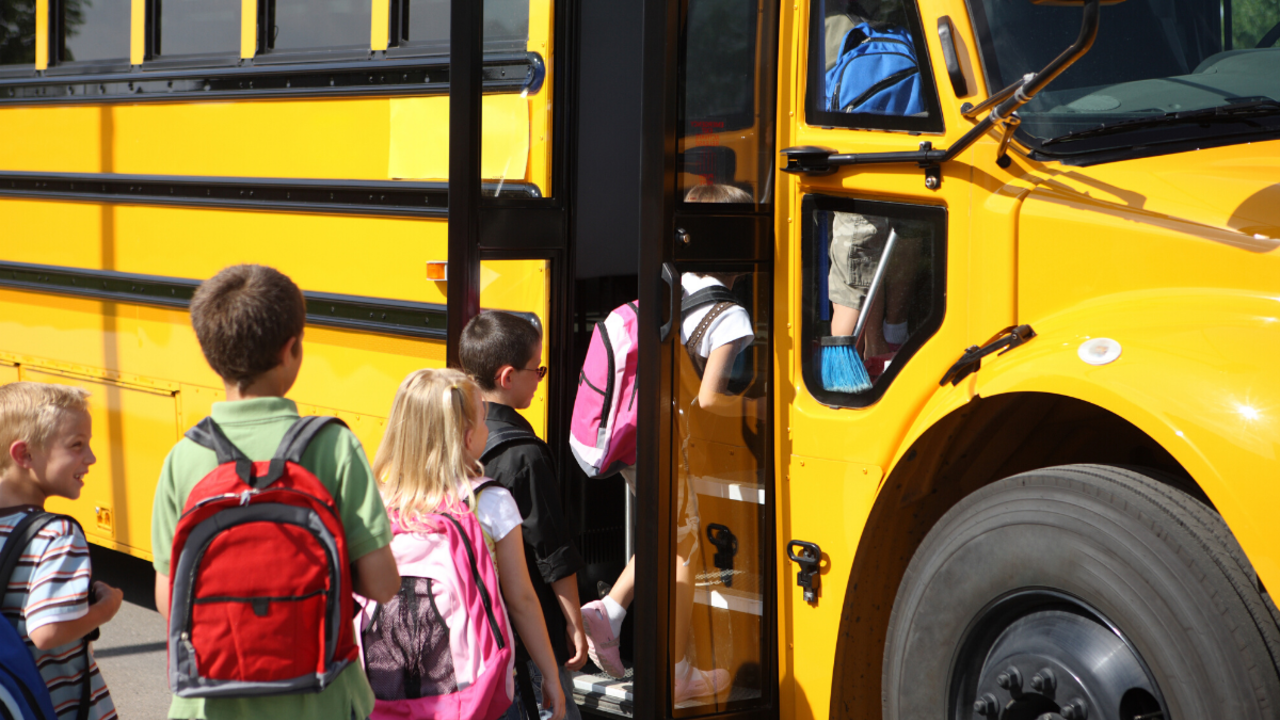100,000 Public Charter School Students Do Not Walk to School

The majority of charter school opponents have one simple message, “charter schools do not have to provide transportation or feed children.”
However, the truth is this: Charters must meet the same legal requirements as district public schools.
For any public school, district or charter, there is no provision in public school law that states any entity must provide transportation. Instead, the law states that each district has the “authority to acquire, own, lease and operate buses.” Public charter schools follow NC General Statute 115C-218.40: “The charter school shall develop a transportation plan so that transportation is not a barrier to any student who resides in the local school administrative unit in which the school is located.”
As a result, 98 public charter schools currently provide school bus transportation as an option for their students (NC Office of Charter Schools, 2019), exactly 50% of all operating charter schools.
This number doesn’t appear to be significant or even sufficient until you compare it to the percentage of students who are transported in district schools. The most recent published data (2017-2018 school year) reveals that only 52% of public district school students (i.e., 753,802 students out of a total of 1,450,949) ride a bus to school.
A second criticism is that charter schools are not required to feed children; however, public charter schools are required to have a lunch plan to ensure that no student goes hungry. Charter schools may choose to fund their lunch program through participation in the Federal Lunch program (House Bill 891), but they are not required to participate. Ask most school leaders why they do not participate, lack of space and human resources needed to manage effectively will be the top reasons.
Charter schools utilize 100% of their allocated state and local funding to upfit buildings, pay teachers, and buy instructional items. Typically, building a cafeteria is not in the budget.
Charter leaders must be innovative with their funding and operations to optimize their service to students. Instead of simply providing a standard meal, many charters demonstrate their flexibility by focusing on nutrition and partnering with vendors who will provide high-quality meals at varied prices, free being one option. Some charters supplement their meals with items from the school garden. Other charters use local fundraising to stock up on non-perishable items “just in case” a child comes to school without a lunch so that nobody goes hungry.
There are two critical questions that are not being asked:
- How do public charter schools that enroll students from multiple counties, sometimes 40 miles away, be expected to create plausible bus routes with limited resources?
- Since the law allows for districts and charters to partner together to provide transportation and serve meals, so why is this not the norm instead of the rare exception?
The fact is that most public charter schools do not serve students from kindergarten through twelfth grade, so their students are very likely to return to their district at some point in their school career. Partnering with charters is a great opportunity for districts to stay engaged in every child’s education and act in good faith as a public service.
The truth is all public schools serve students the best they know how whether they arrive by foot, car, or bus. The conversation should never be about who is taking from whom; instead, the story should be focused on the opportunities to collaborate and educate our most precious resource: Our children.
This blog was written by Katy Ridnouer and Dr. Thomas Miller of Leaders Building Leaders, providing effective school leadership solutions. We aim to be the most trusted, innovative and transformational school leadership community in the world.
Join Our Daily Thought List!
Get daily inspirational messages and updates on our events and programs.

